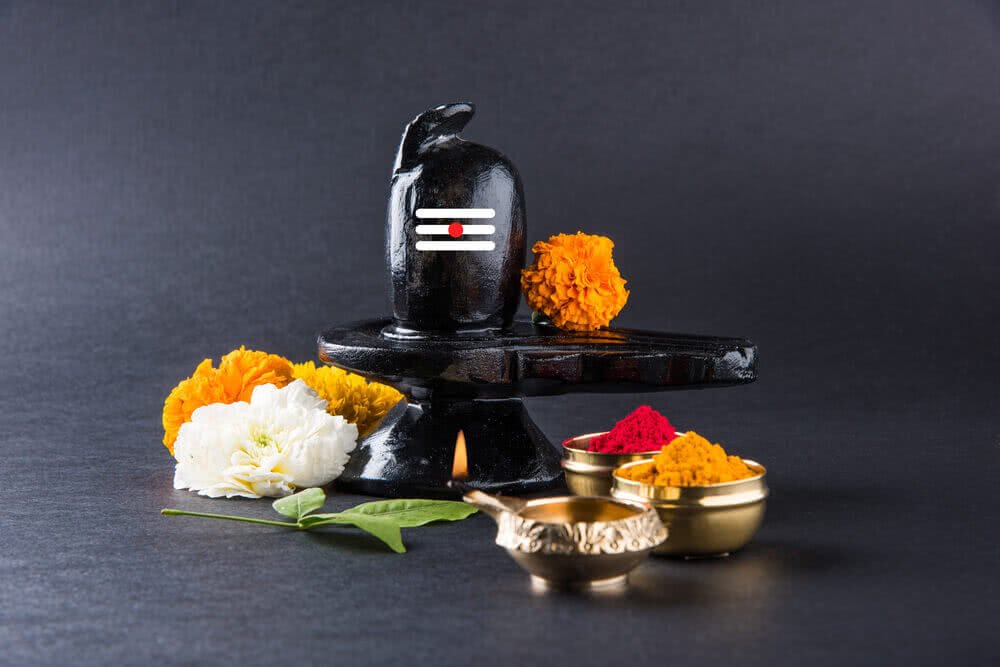Offering flowers to God is a daily ritual in traditional homes. Gods and goddesses are indeed divine beings for us. Since they reside in the astral world, these divine bodies have the air element already in them. Thereafter, they also have a keen sense of smell. Before we get into offering flower to which God, let’s first understand why gods prefer the smell of flowers.
The Fondness For Flowers
Through their very nature, these heavenly beings love the good smell. And they are naturally captivated to the good smell, no matter where it exists. During various rituals, while offering flowers, one invokes gods and goddesses to descend on earth from their respective abode. When one offers them objects of their choice and taste, they descend. And when this happens, they naturally gravitate towards the pleasing smell of flowers, perfumes and other articles that emit good fragrances. It is on this account of their fondness for an amiable smell of flowers. And therefore, we use them during our rituals.
Each God Has Their Taste
Just like human beings, gods and goddesses, too, have their preferences for a particular odour, scent, colour and flower. Therefore, while offering flowers, we make sure to respect it. While some prefer the smell of the yellow marigold, others may prefer that of the white jasmine. While some may opt for the fragrance of a rose, others may love that of the sunflower. Well, this differs for each god and goddesses. Therefore, one makes sure to use only such articles, objects, leaves and flowers that appease them. The important part is to know their choices and tastes. Hence, in pujas and rituals, they find favour with the presiding deity of the puja or ritual.
The Details
In Hinduism’s holy scriptures, did you know that while offering flowers, even the number and special leaves is specified? Yes, you heard that right! One must offer certain gods three red flowers. While one must offer the others with five or nine yellow or white flowers, together with the leaves of a particular tree.
On a similar note, when praying to Lord Vishnu, the offering of tulsi leaves is mandatory. On the other hand, for Lord Shiva, the offering has to include bel leaves. Likewise, for Lord Ganesha, the blades of the durva grass are the go-to offering for any person. Generally, people offer the gods five leaves or flowers. The reason behind this is that the number represents the five basic elements of nature:- the panchabhootas. But remember that in certain specified tantric pujas, the number may vary as per the situation.
The Science Behind Offering flower
The science behind offering flowers, leaves, scents and other aromatic substances is that they all attract positive vibrations. Yes, they all have the characteristic of attracting divine and soothing vibrations from the surroundings. Thus, it sanctifies the entire puja area and charges the atmosphere with heavenly and beautiful vibes.
For example, the Mango leaves, in particular, have this quality of gathering divine vibes from the surrounding atmosphere. Therefore, one ties a bunting of mango leaves called toran over the puja area. For the very same reason, nine or eleven mango leaves are put around the coconut kept at the mouth of a Kalash. Or it is even put around a pot which is normally a part of puja and similar rituals. Hence, now understood the rationale behind using mango leaves.
Freshness Is The Key – Offering Flower to God
But make sure you don’t neglect the freshness of the flowers. Fresh flowers and their petals have a limited life and make the most of it. After their life has gone, they do not serve the purpose of attracting divine vibrations to charge up the ritual area. Because once a flower has withered, one cannot use the same thing for a puja.
Whereas, there are some flowers and leaves that stay fresh for a longer period. The lotus flower, tulsi, bel leaves, the amla fruit and lemon have a longer lifespan. So make a note of this. Because they can retain their freshness for about three days and beyond due to the presence of prana and Dhananjay vayus. Well, prana is the most vital part of air that sustains life and Dhananjay on the other hand, maintains freshness. Also, one can reuse the tulsi and the bel leaves for puja after washing them.
The following shows the preferences of individual gods:
-
Offering Flowers to Ganesha
Gods And Goddesses- Ganesha
Name And Number Of Flowers- Any red flower
Number Of Leaves Or Fruit- Durva grass blades: 1,3,5,7. Don’t ever offer tulsi leaves to Ganesha.
Name Of Scent- Heena
-
Offering Flower to Shiva
Gods And Goddesses- Shiva
Name And Number Of Flowers- Blue Lotus, and white flower, kaner. Do not offer champa or kerwa flower to Shiva.
Number Of Leaves Or Fruit- Bel leaves, dhatura, aak. 9 or 10 leaves.
Name Of Scent- Kewra.
-
Offering flowers to Durga
Gods And Goddesses- Durga
Name And Number Of Flowers- Mogra
Number Of Leaves Or Fruit- Bel leaves, 1 or 9.
Name Of Scent- Mogra
-
Offering flowers to Mahakali
Gods And Goddesses- Mahakali
Name And Number Of Flowers- Yellow kaner 9
-
Offering flowers to Vishnu
Gods And Goddesses- Vishnu
Name And Number Of Flowers- Pink lotus
Number Of Leaves Or Fruit- Tulsi leaves- 1,3,5,7,9.
Name Of Scent- Chandan
-
Offering flowers to Lakshmi
Gods And Goddesses- Lakshmi
Name And Number Of Flowers- Pink lotus 9; Yellow Gaindha (marigold); Desi Gulab (not hybrid).
Number Of Leaves Or Fruit- Shripal (Bel fruit) 1
Name Of Scent- Chandan
-
Offering flowers to Rama
Gods And Goddesses- Rama
Number Of Flowers- Chameli, 4
Name Of Scent- Chameli
-
Offering flower to Hanuman
Gods And Goddesses- Hanuman
Name And Number Of Flowers- Chameli
Number Of Leaves Or Fruit- A garland made up of tulsi or aak leaves.
Name Of Scent- Chameli
-
Offering flower to Krishna
Gods And Goddesses- Krishna
Number Of Flowers- Blue Lotus 3
Name Of Scent- Chandan
-
Offering flower to Dattareya
Gods And Goddesses- Dattareya
Number Of Flowers- Juhi 7
Name Of Scent- Khas
-
Offering flower to Brahma
Gods And Goddesses- Brahma
Name And Number Of Flowers- Tiger and White lotus 6.
-
Offering flower to Saraswati
Gods And Goddesses- Saraswati
Name And Number Of Flowers- any white flower or White lotus 9.








